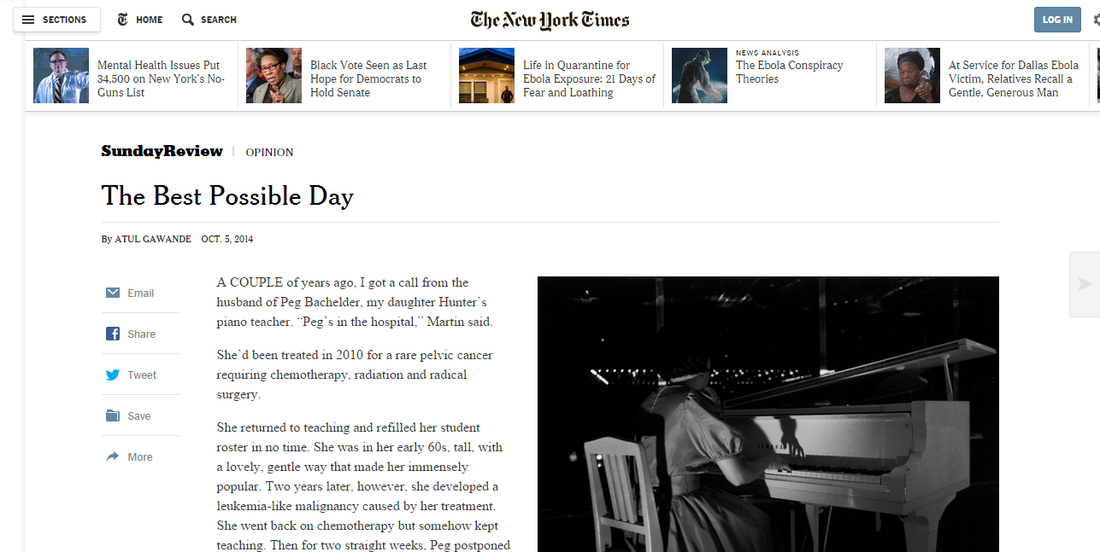Ever since I discovered Atul Gawande's books, I've been hooked to his writing. Gawande's writing is wonderfully insightful and reflective, and reflection is essential for anyone looking to advance their own practices. Just came across this article by Gawande in the New York Times this morning (yes I know I'm a little bit slow) and shared it on Facebook, but I thought this was too memorable for it to be overshadowed by all the frequent updates there.
A cancer patient who saw no hope and only fears: just by asking her what she cared about most in life and what the best possible day meant to her, the hospice team was able to change her environment and enable her to do what she truly wanted and found meaningful in her last days.
Medical care sometimes has too much focus on the illness and not what truly matters to the patient. You play a major role in determining how your patients live their last days, and how their families see them in this period of time. How would you be client-centred and look past the illness, to minimise this "sick role" that they usually take up? If you were in the patient's shoes, would you want to be confined to that hospital bed for "comfort and safety"?
Could you be that occupational therapist (or any other healthcare professional for that matter) advocating and empowering Peg to continue teaching and inspiring her students despite her immobilising hip pain and incontinence, to retain her identity and dignity throughout her last days? If I could, I don't think I would want to do anything else in life :)


 RSS Feed
RSS Feed
